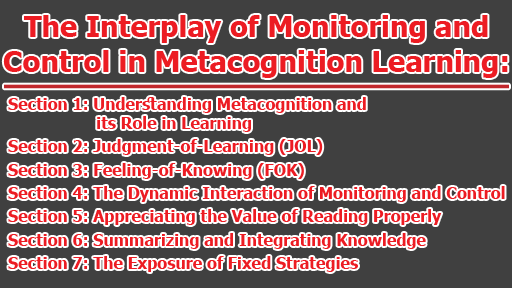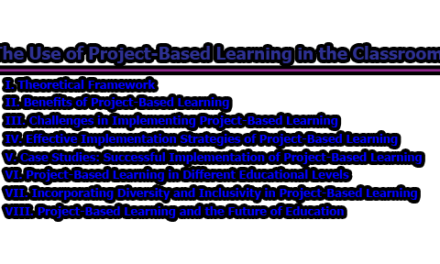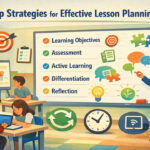The Interplay of Monitoring and Control in Metacognition Learning:
Metacognition, often described as “thinking about thinking,” refers to the process of understanding and regulating one’s own cognitive processes. It plays a crucial role in learning, as it enables individuals to monitor their knowledge, assess their understanding, and adapt their learning strategies accordingly. In the realm of metacognition, two key components, judgment-of-learning (JOL) and feeling-of-knowing (FOK), are essential in enhancing learning outcomes. Additionally, metacognition aids learners in comprehending the nature of the lesson, appreciating the value of reading carefully, and summarizing acquired knowledge effectively. This article delves into the interplay of monitoring and control in metacognition learning, examining how learners’ judgment and feelings about their knowledge impact the learning process and how they employ this awareness to optimize their learning strategies.
Section 1: Understanding Metacognition and its Role in Learning: Metacognition encompasses a set of cognitive processes that enable individuals to observe, assess, and control their own learning experiences. This self-regulatory mechanism involves two primary components: monitoring and control. Monitoring refers to the awareness and evaluation of one’s cognitive processes, while control involves the application of strategies to enhance learning outcomes. By engaging in metacognitive activities, learners become more conscious of their strengths and weaknesses, which empowers them to tailor their learning approaches accordingly.
Section 2: Judgment-of-Learning (JOL): Judgment-of-learning (JOL) is a metacognitive process wherein learners predict their future performance on a task. Before attempting to recall or apply knowledge, individuals assess their ability to remember or comprehend the material. This prediction influences subsequent learning strategies and behaviors. If learners anticipate that they will recall information effectively, they might allocate less time and effort to review the material. Conversely, if they predict poor recall, they are more likely to engage in additional studying or seek alternative learning methods.
JOL is influenced by various factors, such as the learner’s prior knowledge, familiarity with the subject matter, and the complexity of the material. Research has shown that individuals with a deep understanding of the topic tend to make more accurate JOLs, whereas novices may struggle to gauge their performance accurately. Through repeated practice and feedback, learners can refine their JOL abilities, leading to more efficient and effective learning.
Section 3: Feeling-of-Knowing (FOK): Feeling-of-knowing (FOK) is another metacognitive process related to JOL. FOK involves assessing one’s knowledge about a specific topic without directly retrieving the information. In contrast to JOL, which focuses on predicting future performance, FOK centers on evaluating the current state of one’s knowledge. Learners might experience a feeling of familiarity or confidence regarding their understanding of a concept, even if they cannot recall it at that moment.
FOK is particularly relevant during activities like taking a test when individuals encounter a question they cannot answer. The FOK experience prompts learners to recognize that they possess the necessary knowledge but are temporarily unable to access it. This awareness motivates them to implement retrieval strategies or seek alternative approaches to recall the information successfully.
Section 4: The Dynamic Interaction of Monitoring and Control: The relationship between monitoring and control is dynamic and reciprocal. Accurate monitoring informs effective control, and effective control, in turn, refines monitoring abilities. When learners make reliable JOLs and experience accurate FOK, they can optimize their learning strategies. For example, if a learner accurately judges that they have a solid comprehension of a topic (JOL) and encounters a challenging question they cannot answer (FOK), they are more likely to apply retrieval practice or seek additional resources to reinforce their understanding.
Moreover, metacognitive awareness enables learners to adapt their study routines based on their performance and outcomes. If a learner consistently underestimates their performance (e.g., predicts poor recall but performs well), they may become more confident and rely less on inefficient strategies like excessive re-studying. Conversely, if a learner overestimates their abilities (e.g., predicts strong recall but performs poorly), they may become more vigilant and invest more effort into their learning process.
Section 5: Appreciating the Value of Reading Properly: Metacognition influences learners’ appreciation of the value of reading material carefully and with intent. When learners understand the significance of actively engaging with the content, they are more likely to focus on comprehension and critical thinking rather than passive reading. Metacognitive skills help learners identify when they are not fully absorbing information, leading them to adjust their reading pace, take notes, or engage in other strategies to enhance their understanding.
Section 6: Summarizing and Integrating Knowledge: Metacognition also plays a pivotal role in learners’ ability to summarize and integrate the knowledge they have acquired. After learning new information, individuals with strong metacognitive skills can reflect on the material, organize it effectively, and create coherent summaries. By engaging in this process, learners consolidate their understanding and identify any gaps in their knowledge.
Section 7: The Exposure of Fixed Strategies: One of the critical aspects of metacognition is the ability to be flexible and adaptable in learning strategies. Learners who develop fixed strategies and are unwilling to adjust their approaches may hinder their metacognitive growth. For instance, if a student always relies on rote memorization without considering the context or application of knowledge, their metacognitive development may stagnate.
Finally, we can say that metacognition forms the backbone of successful learning, as it enables individuals to monitor and control their cognitive processes effectively. The interplay between monitoring (JOL and FOK) and control influences learners’ decision-making regarding study strategies, reading techniques, and knowledge integration. By developing strong metacognitive skills, learners can enhance their learning experiences and achieve more profound comprehension and retention of information. However, fixed strategies can impede metacognitive growth. To appreciate the value of metacognition, learners must embrace flexibility, adaptability, and self-awareness throughout their educational journey. In doing so, they equip themselves with invaluable tools for lifelong learning and intellectual growth.
Reference:
Dai, R., Thomas, A. K., & Taylor, H. A. (2018). When to look at maps in navigation: Metacognitive control in environment learning. Cognitive Research: Principles and Implications, 3(1), 36. https://doi.org/10.1186/s41235-018-0130-7

Library Lecturer at Nurul Amin Degree College










